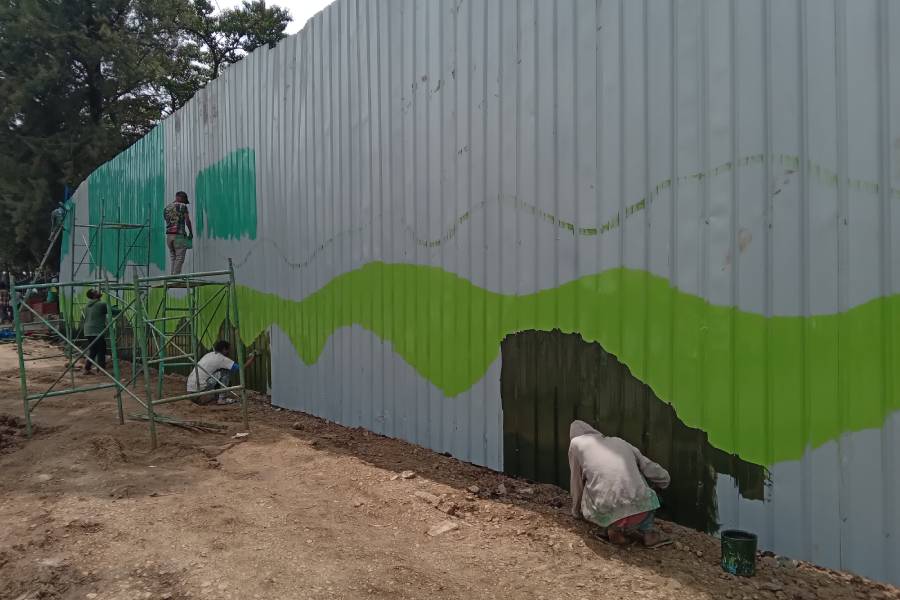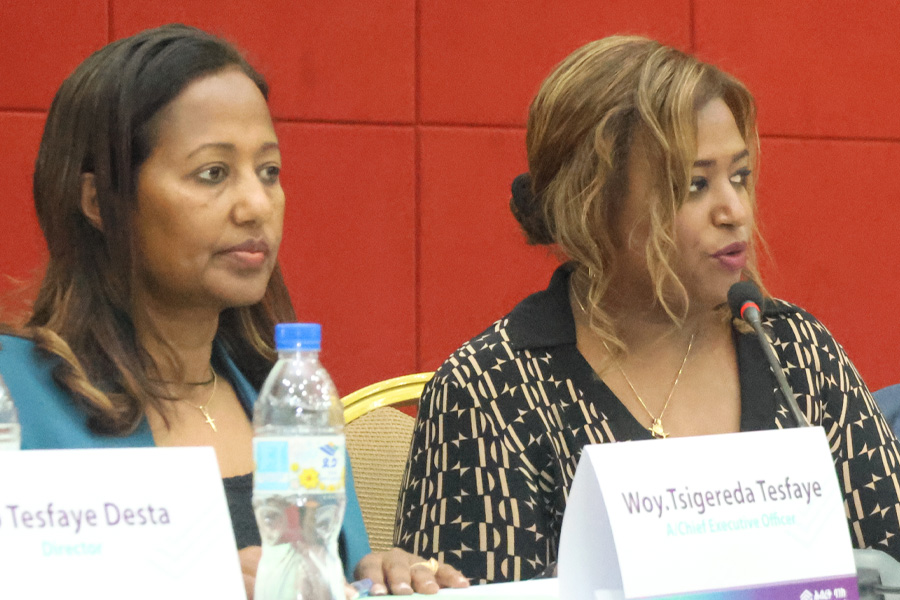
Months after the Institute of Ethiopian Standards introduced benchmarks for electric vehicle (EV) battery lifespan and capacity, the absence of accompanying standards for charging stations has stalled multimillion-dollar projects and left the industry in limbo. While the safety and performance standards for EVs were hailed in September as a milestone for the sector, their impact has been limited without corresponding implementation measures for critical infrastructure.
A regulatory framework for charging stations remains absent, creating substantial bottlenecks. Ethiopian Electric Power (EEP), for instance, signed a 25 million dollar agreement with Cardinal Industrial Plc a couple of years ago to build 500 charging stations. Yet, the project remains delayed.
“We can’t start without directives or regulations,” said Moges Mekonnen, EEP’s Communication Director.
Those who have built a scaled-up investment have been caught in another developmental project. GreenTech Africa’s 4.5-million-Br charging station near the Sudan Embassy was demolished before it could become operational due to a corridor development.
Established in 2021, GreenTech leaders believe imported, manufactured, and assembled EVs must be suitable for the country’s infrastructural and environmental conditions while having adequate battery capacity of a minimum 200Km for a full charge range.
Fitsum Derresa, project manager at GreenTech, noted that most EV owners charge their vehicles at home, limiting the business potential of expansion. Unless public transportations are transformed to drive demand, he suggested integrating charging points into existing gas stations.
“The high cost of expansion on top of this makes investors hesitant,” he told Fortune.
However, investors like Libya Oil Ethiopia Ltd and TotalEnergies have taken a cautious approach, opting to wait and assess demand. Both companies have installed charging points at the African Union compound and Africa Avenue (Bole Road), respectively, but have refrained from scaling up efforts.
“We’re uncertain of the future,” said Solomon Tesfaye, finance manager of OilLibya.
The lack of a regulatory framework also extends to issues like electricity tariffs and the standardisation of charging equipment. Even though the standard is in the works at the Institute, authorities at the Petroleum & Energy Authority (PEA) have drafted a directive for Electric Vehicle Charging Systems (EVCS) to address these gaps, pending approval.
According to Bekelech Kuma, communication director, the draft directive is expected to establish licensing requirements, standardise imported equipment, and set market-based electricity tariffs. It also proposes strategically placing charging stations at intervals of 50Km to 120Km and requiring each station to have its transformer.
The federal government’s ban on petroleum-powered vehicles last year was intended to reduce foreign currency outflows and align with sustainability goals. While the Institute’s safety standards aspire to ensure EVs are suited to the country’s roadway and weather conditions, the lack of implementation guidelines threatens these economic and environmental objectives.
According to Yilma Mengistu, director of standards development at the Institute, the standard for charging stations is underway along with a 10-year development strategy for the EV sector to guide its growth.
He said the focus on safety and performance is essential as importing automobiles with marked foreign exchange requires careful consideration to avoid increased maintenance costs down the line.
“Imported vehicles must deliver value for money,” said Yilma.
The Institute expects the Ministry of Transport & Logistics to issue a directive that will help implement the safety standards prepared by the technical committee for road vehicles and approved by the National Standardisation Council.
Importers and assemblers also have concerns. Belay Ab Motors, which has sold around 10,000 vehicles, has long advocated for clearer requirements. Deputy General Manager Setotal Tarekegn welcomed the standards but noted, that there are long list of demands: “We need regulations for chargers, as different regions use distinct charging standards.”
The lack of spare parts further compounds the issue. Henok Haimanot, an EV importer, said he had to include importing spare parts noticing the dire need.
EVs imported over three years ago feature lead-acid batteries, a cause for worry, according to Yonatan Sisay, a technician at Gerar EV Workshop. He recommends lithium-ion-based EVs with an active battery management system as it can balance the cells in the battery, leading to efficiency and longevity.
Yonatan stated that four-wheeled vehicles should not use lead-acid-based batteries because they have a shorter life span.
“It’s possible to change it to lithium-ion,” Yonatan said. “However, not in the current technological capacity at hand.”
The Ministry oversees the enforcement of these standards, requiring all imported EVs to provide certificates of origin and pre-export verifications of conformity.
According to Birhanu Gidi, a senior expert at the Ministry, the electric vehicles that were previously imported were part of the initiative to promote the development of the EV sector. While there is no specific standard for electric vehicles, he believes there is a general rule for vehicles imported to Ethiopia, provided by the Ministry.
“It governs previously imported electric vehicles as well,” he said.
With the establishment of standards and the implementation of service directives, he is optimistic about the sector's growth.
While the draft directive offers hope for the sector's progress, delays in approval and implementation risk undermining ambitions for a sustainable and modern EV ecosystem.
PUBLISHED ON
Nov 24,2024 [ VOL
25 , NO
1282]

Radar | Dec 15,2024

In-Picture | Jul 08,2024

Fortune News | Jun 17,2023

Featured | Sep 09,2024

Fortune News | Jun 14,2020

Viewpoints | Jun 01,2019

Fortune News | Aug 12,2023

Radar | Feb 03,2024

Radar | Dec 25,2023

Radar | Dec 01,2024

Dec 22 , 2024 . By TIZITA SHEWAFERAW
Charged with transforming colossal state-owned enterprises into modern and competitiv...

Aug 18 , 2024 . By AKSAH ITALO
Although predictable Yonas Zerihun's job in the ride-hailing service is not immune to...

Jul 28 , 2024 . By TIZITA SHEWAFERAW
Unhabitual, perhaps too many, Samuel Gebreyohannes, 38, used to occasionally enjoy a couple of beers at breakfast. However, he recently swit...

Jul 13 , 2024 . By AKSAH ITALO
Investors who rely on tractors, trucks, and field vehicles for commuting, transporting commodities, and f...

Oct 11 , 2025
Ladislas Farago, a roving Associated Press (AP) correspondent, arrived in Ethiopia in...

Oct 4 , 2025
Eyob Tekalegn (PhD) had been in the Governor's chair for only weeks when, on Septembe...

Sep 27 , 2025
Four years into an experiment with “shock therapy” in education, the national moo...

Sep 20 , 2025
Getachew Reda's return to the national stage was always going to stir attention. Once...